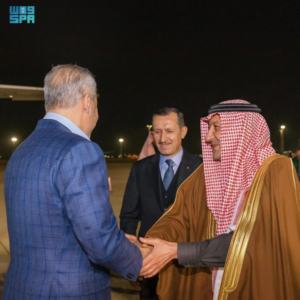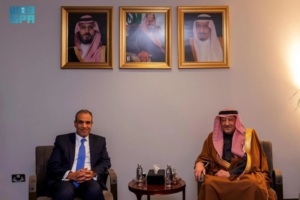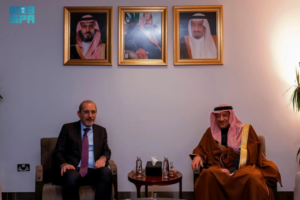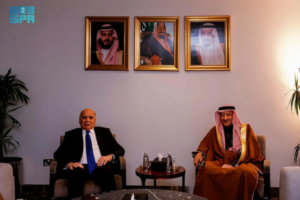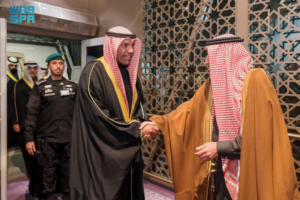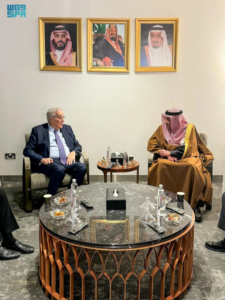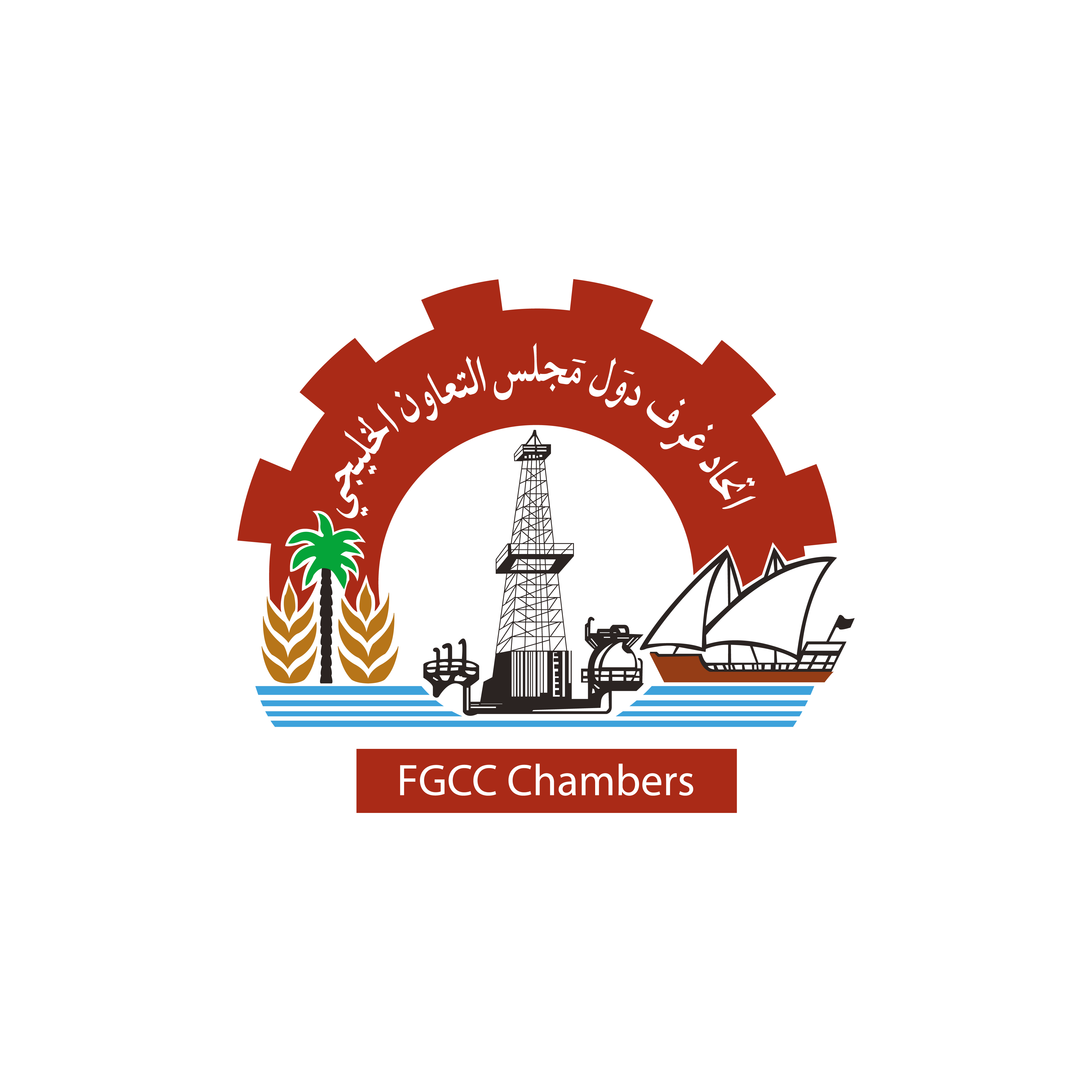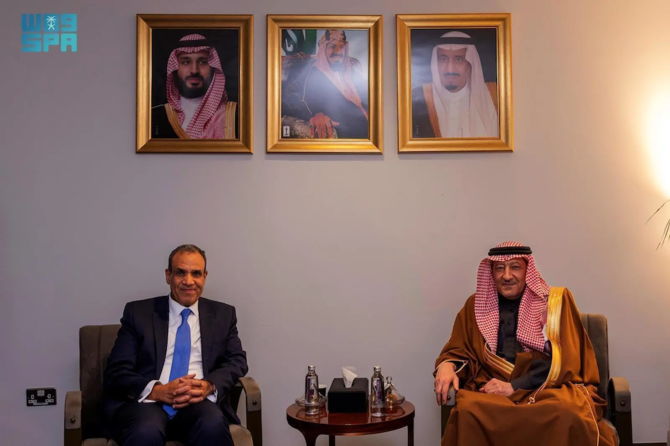Top diplomats from the Middle East and Europe were arriving in the Saudi capital on Sunday to discuss Syria, as world powers push for stability after the fall of Bashar Assad.
The talks on Sunday will unfold in two sessions: the first will bring together Arab officials, while the second will feature wider participation, including from Turkiye, France, the European Union and the United Nations, a Saudi official told AFP on Saturday.
Syria’s new leader Ahmed Al-Sharaa, who led the main group in the alliance that overthrew Assad, is pushing for sanctions relief.
Western powers, including the United States and the European Union, imposed sanctions on Assad’s government over his brutal crackdown on anti-government protests in 2011, which triggered the civil war.
More than 13 years of conflict have killed over half a million Syrians, left infrastructure destroyed and the people impoverished, while millions have fled their homes, including to Europe.
The European Union’s top diplomat, Kaja Kallas, said on Friday that the 27-nation bloc could begin lifting sanctions if Syria’s new rulers took steps to form an inclusive government that protected minorities.
Saudi Arabia cut ties with Assad’s government in 2012 and had long openly championed his ouster. But in 2023 it hosted an Arab League meeting at which Assad was welcomed back into the regional fold.
This month the Gulf kingdom has sent food, shelter and medical supplies to Syria over land and by plane.
Riyadh is now negotiating how to support the war-struck country’s transition beyond that.
“This summit sends the message that Saudi Arabia wants to take the lead on coordinating the regional effort to support Syria’s recovery,” said Anna Jacobs, non-resident fellow at the Arab Gulf States Institute in Washington.
“But the big question is how much time and how many resources will Saudi Arabia devote to this effort? And what is possible with many of the sanctions remaining in place?”
The meetings on Sunday represent a continuation of talks on post-Assad Syria held last month in Jordan, the Saudi official said.
After those talks in Aqaba, diplomats called in a joint statement for a Syrian-led transition to “produce an inclusive, non-sectarian and representative government formed through a transparent process.”
The statement also stressed “respect for human rights” and the importance of combating “terrorism and extremism,” demanding all parties cease hostilities in Syria.
Turkiye’s foreign minister had confirmed he would attend Sunday’s meeting. Iraq’s top diplomat was also in Riyadh for the gathering, and AFP saw Germany’s foreign minister at the conference venue.
US Undersecretary of State John Bass is also set to attend, coming from talks in Turkiye that partly covered “the importance of regional stability, preventing Syria from being used as a base for terrorism, and ensuring the enduring defeat” of the Daesh group, the State Department said.
Riyadh is “positively approaching” the new leaders in Syria, looking to see if they can bring stability and “control the more extreme elements in (their) ranks,” Karim said.
The group that Sharaa leads, Hayat Tahrir Al-Sham, is rooted in the Syrian branch of Al-Qaeda, but years ago broke that link and has sought to moderate its image.
